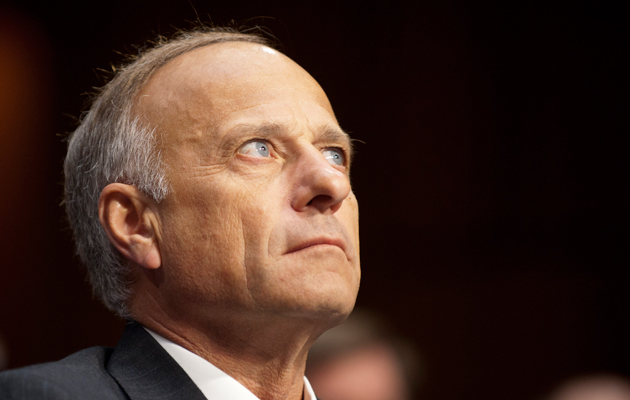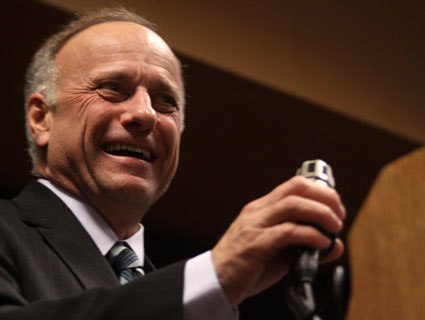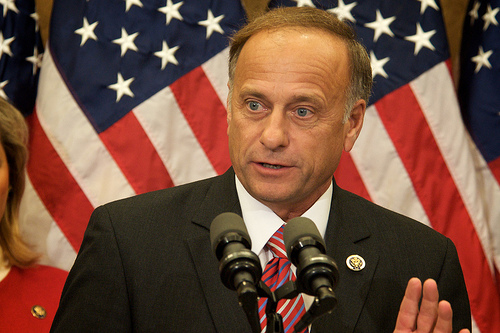
Rep. Steve King (R-Iowa).Pete Marovich/ZumaPress.com
On Wednesday, Rep. Steve King (R-Iowa), last seen evaluating the leg muscles of undocumented immigrants, told a town hall audience in Iowa that we have nothing to fear from climate change—we probably won’t even notice it. Per the Fort Dodge Messenger:
“Everything that might result from a warmer planet is always bad in (environmentalists’) analysis,” he said. “There will be more photosynthesis going on if the Earth gets warmer. … And if sea levels go up 4 or 6 inches, I don’t know if we’d know that.”
He said sea level is not a precise measurement.
“We don’t know where sea level is even, let alone be able to say that it’s going to come up an inch globally because some polar ice caps might melt because there’s CO2 suspended in the atmosphere,” he said.
One reason Steve King probably might not notice four inches of sea level is that he lives in northwest Iowa. But Iowans are already beginning to feel the effects of anthropogenic climate change—hard. According to the Iowa Flood Center at the University of Iowa, climate change has dramatically increased the impact of flooding and drought in the region, with serious economic consequences. But it’s a not a question of seas rising four to six inches, as serious as that might be. As my colleague Chris Mooney reported, humans have already set in motion about 69 feet of sea level rise, with devastating consequences for such sparsely populated areas as New York City, New Orleans, and the entire nation of Bangladesh.















